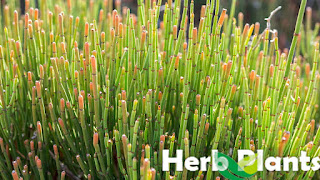Welcome, dear readers, to an exciting journey into the world of Ephedra, a remarkable plant with a long history of human use. Ephedra, also known as Ma Huang, has captured the attention of individuals seeking an energy boost, weight loss, and athletic performance enhancement. In this article, we will explore the fascinating aspects of Ephedra, shedding light on its benefits, potential risks, and its place in modern society. So, let's dive right in!
The Nature of Ephedra
Ephedra is a unique plant native to several regions around the world, including China, Mongolia, and the southwestern United States. Its ancient roots can be traced back thousands of years to traditional Chinese medicine, where it was used to treat various respiratory conditions, such as asthma and bronchitis.
Energy Boost and Weight Loss Claims
One of the most notable properties associated with Ephedra is its potential to provide an energy boost. The plant contains natural compounds called ephedrine and pseudoephedrine, which act as stimulants in the human body. These compounds have been believed to increase alertness, reduce fatigue, and enhance overall energy levels.
Moreover, Ephedra has also been linked to weight loss. Some studies suggest that ephedrine can temporarily suppress appetite, leading to decreased calorie intake. Additionally, it may slightly increase the body's metabolic rate, promoting fat burning. However, it's important to note that weight loss is a complex process, and relying solely on Ephedra for achieving weight loss goals is not recommended.
Potential Risks and Side Effects
While Ephedra holds promise as an energizer and weight loss aid, it is crucial to be aware of its potential risks and side effects. The stimulating properties of ephedrine can also have adverse effects on the body. Common side effects may include increased heart rate, elevated blood pressure, insomnia, nervousness, and irritability.
In some cases, Ephedra has been associated with severe health complications, including heart attacks, strokes, and even death. Due to these risks, the United States Food and Drug Administration (FDA) banned the sale of dietary supplements containing ephedrine alkaloids in 2004. It is vital to prioritize your health and consult a healthcare professional before considering any Ephedra-based products.
Modern Use and Regulations
Despite the restrictions, Ephedra remains a subject of interest in various fields. In traditional medicine, it continues to be used for its potential bronchodilator properties to relieve respiratory ailments. Furthermore, Ephedra is still utilized in some traditional cultural practices and rituals.
It is worth noting that Ephedra extracts devoid of ephedrine alkaloids, such as those derived from species like Ephedra sinica, may be legally available in certain countries as dietary supplements. However, it is essential to exercise caution and ensure the product is reputable, adhering to quality and safety standards.
Conclusion
Ephedra, with its long-standing history, has intrigued humans for centuries. From its traditional use in Chinese medicine to its reputation as an energy booster and weight loss aid, this plant possesses a rich tapestry of properties. However, it is crucial to approach Ephedra with caution due to its potential risks and side effects.
Remember, the human body is unique, and what works for one person may not work for another. Prioritize your health and well-being by consulting with healthcare professionals before considering any Ephedra-based products.
We hope this article has provided you with valuable insights into the world of Ephedra. If you have any thoughts, experiences, or questions about Ephedra, we would love to hear from you in the comments section below.
If you found this article informative and engaging, please consider supporting us by using the support button. Your contribution will help us continue to bring you more captivating content on a wide range of topics.




0 Comments